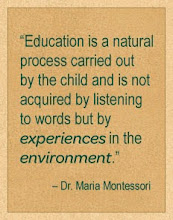Rote learning can halt achievement.

Predictable classroom procedures and rote learning can cause learning problems. It can lower and even halt achievement, particularly in identified gifted students. In fact, they can even start to fail the easiest of tasks! Marylou Kelly Streznewski, a Program Specialist in Gifted Education, writes that researchers have found that the brain of a gifted individual has more complex connections and faster activity between them. “Their minds do, literally, race.” she says in her book “Gifted Grownups”.
The result of having a more active brain is that, in order to learn at all, gifted students need more new and challenging content. If they do not get that, mental functioning slows and gets disorganized or even blocked. “Prolonged deprivation can result in irreversible damage”, according to the author.
Virginia Ehrlich, who wrote “Gifted Children”, would agree. She says, “Many bright youngsters leave school out of sheer boredom and frustration”. So, it is therefore critical that schools adapt the curriculum to meet these students’ special needs. Some schools are starting to do just that, but it needs to happen in all classrooms and especially immediately for all students who are currently at risk of failing. When falling grades are not noted and taken seriously by teachers or parents, chronic underachievement can set in. If not reversed in time, emotional damage caused by a severely lowered self-esteem can negatively affect the student, sometimes for good!
According to educator Jerome Bruns, as many as 20 percent of American students do not routinely do the work that teachers assign even though they are intellectually able to understand and do it. He calls it work inhibition. Of the students analyzed, almost all had average or high intellectual abilities, with 36 percent having IQ scores in the superior to very superior range. For the latter group work that is too easy or boring especailly can cause aversion.
Yet, despite their refusal or “inability” to do assigned work, many “failing” students still did well on exams and scored average to high on achievement tests. Virginia Ehrlich urges parents and teachers to take such results into account when evaluating the child. She says they are a truer reflection of the child’s level of performance. Failing classes is clearly not always because of lack of ability but rather of not completing homework. Since homework completion is factored into the final grade, not doing it becomes a punishment and distorts the picture of a student’s true ability!
Research by Bruns, cited in his book “They Can But They Don’t”, found that students with weak skills obtained at least C’s if they turned in their assignments, while students with excellent knowledge obtained D’s and F’s if they did not complete their work. “Teachers do not give low grades to students who “try”, he says, “but they will fail a brilliant child who doesn’t.”
Many gifted students may be underachieving. In one Greeley high school in the first half of 2000, almost 25 percent of all identified gifted students had a GPA of C or lower. Doubting their abilities and seeing their credits for graduation dwindle, these students may likely become the next crop of dropouts. Forcing them to retake classes is often insulting and futile as many could have passed if only test scores had counted!
To educators gifted underachievers seem to be “unmotivated”, “lazy”, or having behavior problems. They usually recognize that they are capable of doing better but often do nothing more than blame the student for not applying him or herself, causing the student to feel even more like a failure. Yet, it is the teacher who can offer relief by seeking the student’s feedback on how he feels he can perform better and allow for necessary adaptations in work and alternative methods of assessment.


2 Comments:
At 9:39 AM, Anonymous said…
Anonymous said…
I think my son shows strong signs of work inhibitition. I have been trying to get to the bottom of this since he was in kindergarten. His teachers have tried to hold him back on two occasions and I keep on insisting that they don't. After reading Dr. Bruns book, I feel like I may have some answers. Is there a way that I can be contacted by someone regarding this?
At 10:28 AM, Conny Jensen said…
Conny Jensen said…
It would be a good idea to share your findings in Bruns' book with the teachers of your son. If you like, I can send you an excerpt by email.
Post a Comment
<< Home